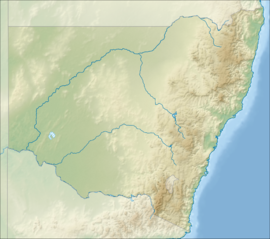Ukerebagh Island

Ukerebagh Island, located in the Tweed River
|
|
| Geography | |
|---|---|
| Location | Tweed River |
| Highest elevation | 20 m (70 ft) |
| Administration | |
|
Australia
|
|
| State | New South Wales |
|
Ukerabagh Island Nature Reserve New South Wales |
|
|---|---|
|
IUCN category Ia (strict nature reserve)
|
|
| Nearest town or city | Tweed Heads |
| Coordinates | 28°11′25″S 153°32′54″E / 28.19028°S 153.54833°ECoordinates: 28°11′25″S 153°32′54″E / 28.19028°S 153.54833°E |
| Established | 1983 |
| Area | 1.25 km2 (0.5 sq mi) |
| Managing authorities | NSW National Parks & Wildlife Service |
| Website | Ukerabagh Island Nature Reserve |
| See also | Protected areas of New South Wales |
The Ukerabagh Island is a river island, contained within the Ukerabagh Island Nature Reserve, a protected nature reserve, that is located in the mouth of the Tweed River, in the Northern Rivers region of New South Wales in eastern Australia. The 125-hectare (310-acre) reserve is situated near Tweed Heads and 1 kilometre (0.62 mi) south of a section that defines the border between the states of New South Wales and Queensland. The island and reserve is an important site for coastal birds.
The island remains a significant area to the local indigenous Australians. The Minjungbal people were the first people to live in the district, they spoke the Minjungbal language, a dialect of the Bundjalung. Senator Neville Bonner, the first indigenous Australian member of parliament was born under a palm tree on the island in 1922. Though the settlement was abandoned in the 1960s, Aboriginal people still visit the island regularly.
The island is surrounded by mangroves. There are four mangrove species in the far north east of New South Wales. Other common plants on the island include David's Heart and the Coast Hibiscus. A small patch of littoral rainforest occurs on the island.
...
Wikipedia

